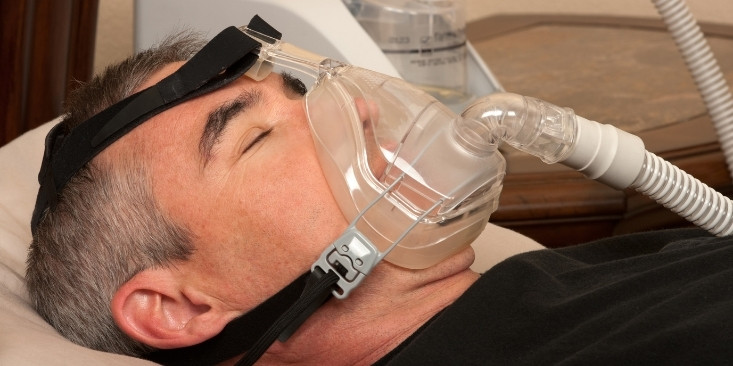Sleep Apnea or Just a Halloween Haunt? Recognizing Symptoms Beyond Spooky Nights

The clock strikes midnight, and suddenly you are awake – heart pounding, gasping for breath. Is it a lingering Halloween chill or something more concerning? Many people shake off these nighttime disturbances as spooky season jitters, but sometimes these restless nights point to a real health issue: sleep apnea.
Halloween may bring haunted dreams and eerie noises, but some nighttime struggles linger past the season. Sleep apnea is a condition that disrupts breathing during sleep, leading to sudden awakenings, fatigue, and even health risks if left untreated.
This post will uncover how to tell if your nighttime “frights” are just Halloween thrills or a sign of something more serious. From recognizing common symptoms of this health issue to understanding when to seek help, let’s dive into how to separate spooky nights from health concerns.
The Spooky Symptoms of Sleep Apnea
Understanding Sleep Apnea Basics
Sleep apnea is a sleep disorder where breathing repeatedly stops and starts during sleep. It affects the quality of rest and leads to daytime issues like fatigue and brain fog. The three common types of sleep apnea are:
- Obstructive Sleep Apnea (OSA): The most common type, where throat muscles relax and block the airway.
- Central Sleep Apnea (CSA): The brain doesn’t send proper signals to muscles that control breathing.
- Complex Sleep Apnea Syndrome: A mix of OSA and CSA.
Without treatment, this issue can damage one’s health, affecting not just sleep but overall well-being.
Symptoms with a Halloween Twist
- Gasping for Air (or a Frightful Breath)
Ever wake up gasping for air, heart racing? This jolt can feel like a Halloween scare, but it might be caused by sleep apnea. People with this issue often experience sudden awakenings as their body fights to restore airflow. It is a startle that goes beyond nightmares and points to interrupted breathing. - Bone-Chilling Snores
Imagine snores so loud they could echo through a haunted house! Persistent, loud snoring is a classic sleep apnea sign. While snoring alone does not confirm sleep apnea, it is often paired with other symptoms like gasping or choking. These nighttime “growls” are not just annoying – they are warning signals. - Morning Brain Fog (Worse Than a Zombie’s)
A rough night can leave anyone feeling groggy, but with this issue, fatigue does not lift. The brain fog and fatigue are relentless, sometimes worse than a zombie’s morning routine! Sleep apnea deprives the body of deep sleep, making daily focus, energy, and mood suffer. - Restless Sleep (Even When the Night is Dead Quiet)
Tossing, turning, and frequent awakenings – restless sleep haunts sleep apnea sufferers. Their body struggles for breath, keeping them from entering a restful sleep cycle. This leaves them drained, even after a full night’s sleep.
How Does Sleep Apnea Differ from Halloween Haunts?
Real vs. Imagined Frights
It is normal to feel startled if you wake from a vivid dream or hear a bump at night. But sleep apnea’s “frights” are different. The symptoms persist night after night, with physical interruptions to breathing. Unlike Halloween scares that fade by morning, sleep apnea symptoms continue, affecting daily life and health.
Nightmares may make you wake up sweating, but sleep apnea causes real physical symptoms. The body’s inability to get sufficient oxygen impacts both sleep quality and well-being. This is not just a one-time fright. It is a recurring issue that can lead to long-term complications.
When to Be Concerned?
A few sleepless nights may not seem alarming, but ongoing issues can point to this issue. The condition causes physical symptoms beyond fright – morning headaches, dry mouth, and mood swings.
People with this condition often feel irritability and exhaustion, far beyond normal nighttime disturbances. If sleep troubles occur nightly and affect your daytime functioning, it is time to consider a more persistent cause than simple nightmares.
Sleep apnea can contribute to serious health issues, from high blood pressure to diabetes and heart disease. If you experience snoring, gasping, choking, or constant fatigue, do not brush it off as just Halloween nerves.
Could It Be More Than Just Halloween?
Risk Factors to Watch For
Several factors increase the likelihood of developing this issue. A family history of sleep apnea raises the risk, as do obesity and specific physical traits like a large neck or small jaw structure. Age also plays a role; people over 40 are more likely to develop this issue, though it can affect anyone.
A professional evaluation could be helpful if these risk factors sound familiar and you experience symptoms like snoring or morning fatigue.
Self-Check for Persistent Symptoms
Should you be concerned? Use this quick checklist to monitor symptoms:
- Do you snore loudly most nights?
- Do you wake up feeling tired or with a headache?
- Do you experience sudden awakenings gasping for air?
- Do you feel excessively tired during the day?
Apps and wearable tech can help track sleep patterns, noting frequent disturbances or oxygen drops during sleep. These tools can provide useful information if you decide to consult a healthcare provider.
Seeking Help: When and How to Break the Spell?
When to See a Doctor?
If symptoms last more than a few weeks or impact your daily life, consult a healthcare provider. Persistent snoring, fatigue, or breathing interruptions aren’t issues to ignore. Without timely treatment, they can lead to serious health conditions.
Diagnosis and Treatment Options
A sleep study, done at home or in a sleep clinic, is often the best way to diagnose this condition. Specialists like sleep medicine doctors or ENT professionals can evaluate symptoms and recommend appropriate testing.
Treatment Options: CPAP Machines, Lifestyle Changes, and More
- CPAP Machines: The Continuous Positive Airway Pressure (CPAP) device keeps the airway open during sleep, reducing apnea events.
- Lifestyle Changes: Weight loss, limiting alcohol, and altering sleep positions can significantly improve symptoms.
- Oral Appliances: These are custom-fitted mouthpieces that help maintain open airways by adjusting the jaw position during sleep.
Early diagnosis and treatment improve sleep quality and reduce health risks associated with untreated sleep apnea.
While sleep apnea might sound daunting, it is manageable with the right support. Remember, Halloween haunts are meant to be fun, but persistent sleep symptoms deserve attention. Ignoring them can impact long-term health and quality of life.
If your nights are filled with more than just Halloween frights, it might be time to speak with a doctor. Sweet dreams, without the scares, await you with proper care and treatment. Don’t let sleep apnea haunt you – take charge of your health today!




